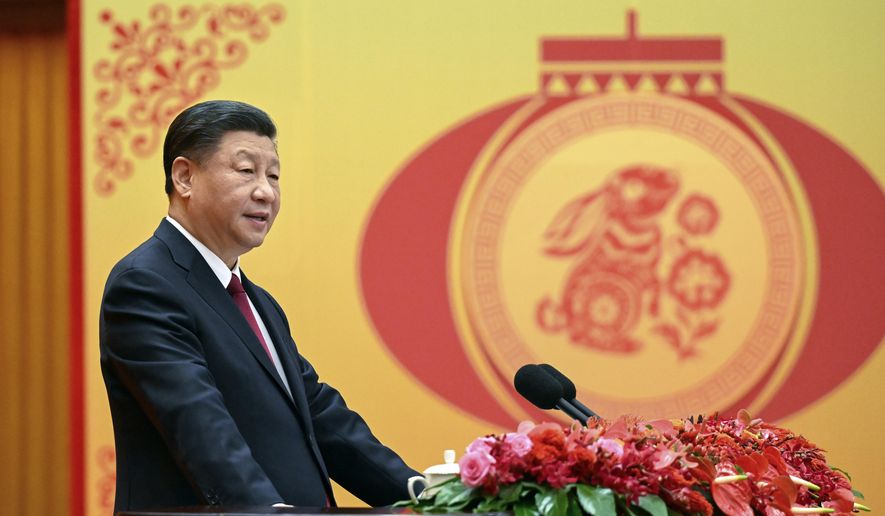OPINION:
China has a well-established record of manipulating the international system to its benefit. It conditions access to its economy on bowing to Beijing’s demands, whether that be on content, sharing proprietary information, or partnering with Chinese businesses.
But there is another, less discussed area in which Beijing games the system: China uses its status as a “developing” country to benefit from provisions and special treatment in treaties and international organizations intended to help poor nations.
China was a low-income country — three decades ago. But today, its economy rivals or surpasses those of other developed countries.
The World Bank credited China with having the world’s second-largest economy in the world in 2021, trailing only the U.S. On a per-capita basis, China ranks in the upper end of the “upper middle-income” group of countries as defined by the World Bank.
In terms of trade and foreign investment, China ranks among the top five of all nations. China has also shifted from development-assistance recipient to donor. The China Africa Research Initiative at Johns Hopkins University pegs Chinese foreign aid expenditures at roughly $3 billion per year. That places it in the upper third of Organization for Economic Cooperation and Development donor nations — on par with Australia, Denmark and Spain.
In short, China walks, talks and acts like a developed economy. China may have deserved classification as a developing country three decades ago. But no longer.
But in international organizations such as the United Nations and some international treaties, China continues to benefit from provisions and differential treatment that is intended to help poor countries.
For instance, when allocating the costs of the organization among the member states, the U.N. applies several discounts for developing countries, including an adjustment for debt and low income per capita. For China, these discounts reduced its regular budget assessment by nearly $50 million in 2023.
Similarly, China has declared itself a developing country in the World Trade Organization. Why? The WTO grants “special and differential treatment” to developing nations, such as longer transition periods to follow through on some WTO obligations and the opportunity to capitalize on developed countries’ commitments to increase trading opportunities for developing countries.
At the World Bank, China continues to receive billions in loans, even though it should not be eligible based on its income level.
In addition, as a “developing” country, China benefits from more lax treatment in several treaties. For instance, the Kigali Amendment to the Montreal Protocol on Substances that Deplete the Ozone Layer requires developed nations to phase down their hydrofluorocarbon production and consumption by 85% by 2036. But developing nations — and China — get 10 more years to hit that target.
The recently negotiated treaty on “marine biological diversity of areas beyond national jurisdiction” similarly calls for the benefits arising from activities addressed by the treaty to “be shared in a fair and equitable manner” and specifies special treatment and support for developing nations. Likewise, the new pandemic treaty under negotiation would commit developed nations to incentivize the transfer of technology and know-how to developing countries and ensure “equitable distribution” of pandemic-related products to developing countries. As it stands, China is poised to benefit from these provisions as a “developing” country.
It all boils down to this: The second-largest economy in the world is cashing in on special provisions in international agreements and organizations meant to help poor nations. This is not “equitable.” It is, frankly, unfair.
The U.S. and like-minded countries need to push back and ensure that wealthy, economically competitive nations like China do not profit from benefits and preferences intended to aid developing economies. This will mean amending treaties and adopting rules in international organizations to ensure that special benefits apply to poor countries as intended by defining “developing countries” as lower-middle-income, low-income, and least-developed countries, as defined by the World Bank and the U.N.
• Brett D. Schaefer is The Heritage Foundation’s Jay Kingham Senior Research Fellow in International Regulatory Affairs.




Please read our comment policy before commenting.